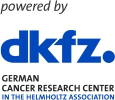Speaker
Description
Pancreatic ductal adenocarcinoma (PDAC), responsible for over 90% of pancreatic cancer cases, remains one of the deadliest cancers, with a 5-year survival rate of just ~11%. Its incidence is increasing by 0.5–1% annually due to ageing populations and rising obesity, and it is projected to become the second leading cause of cancer-related deaths.
The Reichert lab at the Technical University of Munich specialises in patient-derived organoid (PDO) models to study PDAC’s complex biology and heterogeneity. These models replicate the disease’s structure and behaviour in a physiologically relevant environment. The lab is co-spearheading DKTK’s strategic initiative “Organoid Biobank“ and provides a bulk of this effort’s NeoMatch cohort. NeoMatch aims to establish a biobank of longitudinally matched PDOs, before and after neoadjuvant chemotherapy, complemented by sampling cancer-associated fibroblasts (CAFs) and blood samples.
Leveraging this wealth of resources, we focus on creating co-culture systems that simulate the tumour microenvironment (TME), especially interactions with macrophages, T-cells, and CAFs. These components are key to understanding immune modulation and chemotherapy resistance.
To this end, we are using a state-of-the-art bioprinting platform to develop an advanced, high-throughput tumour model for drug screening and immune research. Starting with optimised culture conditions for CAFs and PDO models in the artificial matrix, we will gradually increase complexity. Once established and characterised, the final phase will combine PDOs and cells of the TME in a survival assay using chemotherapeutic drugs and prospectively CAR-T cells to validate the model. This work aims to build a next-generation PDAC model, offering a powerful tool for studying tumour-immune interactions and testing new therapeutic strategies.
| Research type | Translational research |
|---|

